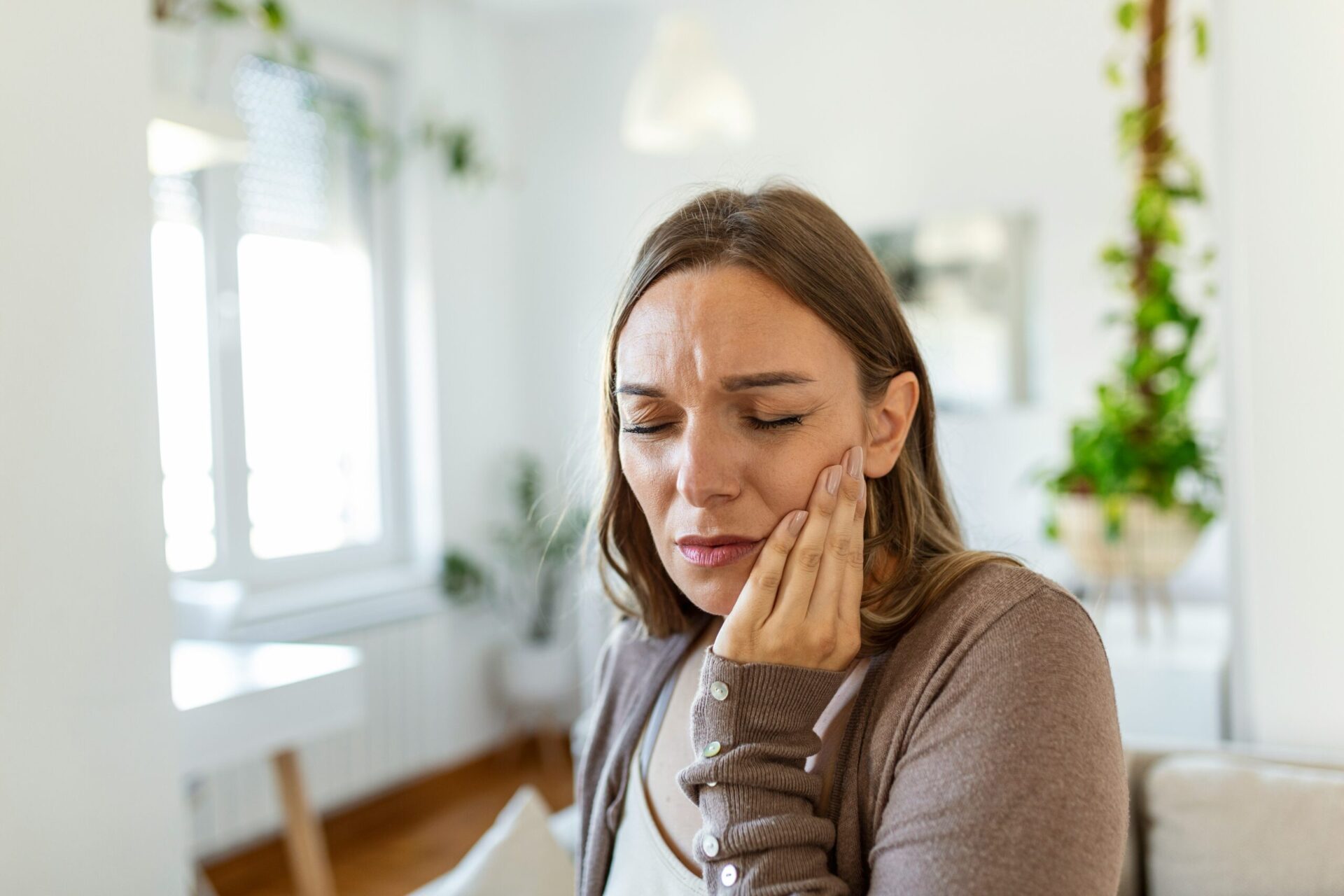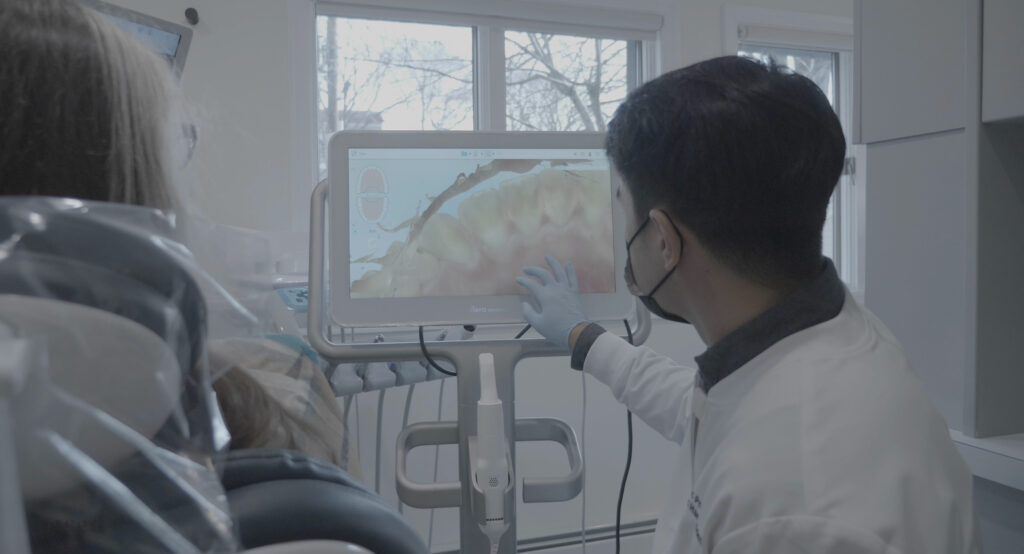Modern technology and advancements have revolutionized dentistry as much as any other field of science. Don’t worry if consciousness takes over you while smiling and you can’t confidently flash your teeth. Veneers are a human-friendly option for the restoration of your facial aesthetics. But the main question arises, ‘Do veneers hurt?’ For better understanding, we must first understand the process of veneering to combat the dental anxiety that the majority of patients experience.
We have answered all your questions about “Do veneers hurt?” in this article while highlighting different types of veneers and the steps of their procedures.

In the current era, aesthetics has become a prominent space in our society. When aesthetics are compromised due to faulty teeth or oral health, it directly affects self-confidence. However, veneers are the ideal option for people with aesthetic concerns. Veneers help with:
There are different types of veneers, and each type has a unique procedure associated with it. We must go through their procedures before understanding the answer to your question, “Do veneers hurt?” We mainly have temporary veneers, no-prep veneers, porcelain veneers, and composite resin veneers.
Let’s discuss all types of veneers to understand whether veneers hurt or not.
The most common, long-lasting, and durable veneers are porcelain veneers, even though we have new alternatives like lithium disilicate glass-ceramic. They are like natural human teeth; therefore, differentiation between veneers and natural teeth becomes difficult. It is not painful to get porcelain veneers. These veneers are applied to the patient’s teeth in multiple appointments.
The first appointment is usually for general consultation and equipping the patient with all the necessary details and knowledge regarding veneers and how to maintain them.
The second appointment usually consists of taking impressions and preparing the teeth. The third and final appointment includes the placement of veneers on natural teeth.
Follow-up appointments are made with the patient, and proper post-veneering instructions are provided so the patient can contact them in case of any inconvenience or discomfort. As for any other foreign appliance, for instance, dentures, braces, or implants, it takes time to get used to veneers. Therefore, it does not hurt to get porcelain veneers, but it takes time to accept them. Acceptance becomes easy when the patient views their top-notch and bright Hollywood smile.
Composite resin veneers are chosen when the patient seeks pain-free, cheap, reliable, and quick alternatives to porcelain veneers. Unlike the porcelain veneers, these are not as tough and long-lasting, but their aesthetic appeal is comparable despite being brittle.
Depending on how quickly the patient wants veneers, we have two options. The first option is direct veneers. Direct veneers can be given to the patient in a single appointment. The patient is examined, and these veneers are immediately directly bonded on the tooth’s surface. As no preparation of teeth is required, the teeth are not sensitive after veneer placement, and they do not hurt after veneers.
The second and more porcelain veneer-like option but with a brittle(composite resin) option is indirect veneers. Indirect veneers require about three appointments; in this case, the teeth must be prepped. Now, do indirect veneers hurt? The pain is mainly in the form of discomfort. When the teeth to be prepared are numbed before the procedure begins, the experience becomes very comfortable.
In addition to the above, we also have a third type of technique. The direct-indirect technique is an amalgam of previously mentioned ones.
No-prep veneers are a reliable yet less durable, affordable option for patients looking for veneers. These veneers are thin, similar to lumineers, and require almost no tooth preparation. The best feature of no-prep veneers is the preservation of natural tooth structure, as no enamel must be removed unless extremely necessary. However, being less durable, these veneers may need replacements.
Getting no-prep veneers is not painful, as no tooth structure will be removed. Therefore, it is usually the choice for patients who get highly anxious in a dental setup.
Do veneers hurt when they are temporary? No, they do not. These customized, plastic-made veneers are the latest variant. Despite being financially friendly, these veneers do not have the desired aesthetic appeal. They are easy to use but cannot be used every day. Unlike the natural-looking porcelain veneers, these veneers are least preferred due to their denture-like appearance and because they do not aid in eating and drinking.
Temporary dental veneers not only contribute to the visual appeal but also play a functional role by preserving normal biting and chewing capabilities. It’s crucial for individuals who want to continue their daily activities without compromising their ability to eat certain things while awaiting the final, permanent veneers.
As mentioned above, the first step is usually tooth shaving or preparation, in which a part of the outermost layer, enamel, is removed. This is where you get the answer to your question, “Do veneers hurt?”.
This is the step that usually scares most patients and triggers their anxiety. This process is generally completed within 30 minutes. To make the experience pain-free, a local anesthetic or a numbing procedure is done. Moreover, the discomfort and pain is directly proportional to the number of teeth. 6-8 teeth veneering may cause jaw and gum soreness, which should be dealt with accordingly.
The patient can experience mild discomfort through a gag during impression-taking. In addition, tooth sensitivity can be felt in the coming days. However, you can combat this sensitivity by consuming the painkiller prescribed to you by your dentist.
No, it is not painful. Veneer placement requires bonding cement to place the veneer on the tooth and form a strong bond between the tooth. You may temporarily feel uncomfortable due to a foreign object in your mouth. However, with time, acceptance follows, and you can easily live with veneers.
Removing veneers is infrequent unless no-prep veneers are concerned, requiring frequent replacements. This process is not painful and is more or less similar to tooth preparation explained above.
Irrespective of the type of veneers in your mouth, it is advisable to maintain oral hygiene properly. Good, supported oral hygiene increases the longevity of veneers. You can:

Do Veneers hurt? We hope you understood your answer thoroughly. Veneers do not break as the mere discomfort that may be experienced is overcome by numbing treatments. If you need help deciding which veneer suits you best, book your consultation today with Hesed Dental and get a customized, budget-friendly plan. We are a team of expert cosmetic dentists restoring smiles and confidence daily in NJ.
We have an in-house facility to design veneers perfectly customized for you. So, why think twice when you can get durable yet affordable porcelain veneers in NJ?

Hesed Dental 543 Gorge Road Cliffside Park, NJ 07010
201 941 8877